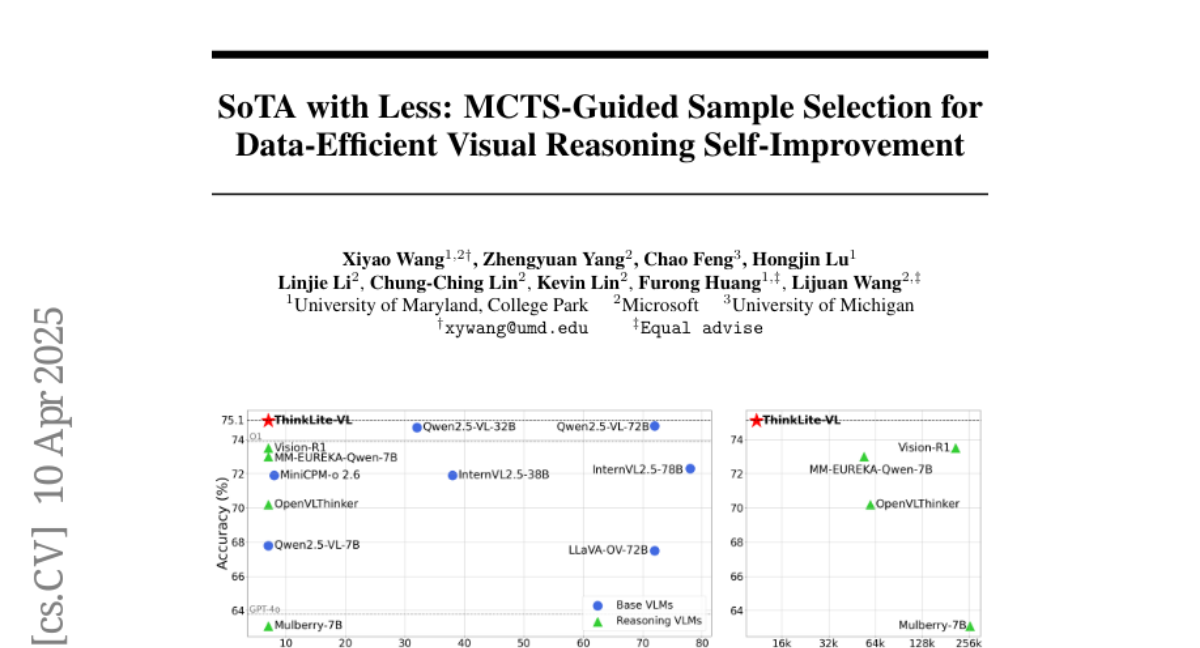SoTA with Less: MCTS-Guided Sample Selection for Data-Efficient Visual Reasoning Self-Improvement
Xiyao Wang, Zhengyuan Yang, Chao Feng, Hongjin Lu, Linjie Li, Chung-Ching Lin, Kevin Lin, Furong Huang, Lijuan Wang
2025-04-11

Summary
This paper talks about a smarter way to train AI for visual problem-solving by picking only the hardest practice questions, making it learn better with less data.
What's the problem?
AI models usually need tons of practice problems to get good at visual tasks, but many of these problems are too easy or repetitive, wasting time and resources.
What's the solution?
The researchers used a strategy called Monte Carlo Tree Search to find the toughest problems by making the AI think through them step-by-step, then trained it on just those hard ones to boost its skills.
Why it matters?
This helps AI learn faster and cheaper, making it better at real-world tasks like solving math problems from diagrams or understanding complex images without needing massive computing power.
Abstract
In this paper, we present an effective method to enhance visual reasoning with significantly fewer training samples, relying purely on self-improvement with no knowledge distillation. Our key insight is that the difficulty of training data during reinforcement fine-tuning (RFT) is critical. Appropriately challenging samples can substantially boost reasoning capabilities even when the dataset is small. Despite being intuitive, the main challenge remains in accurately quantifying sample difficulty to enable effective data filtering. To this end, we propose a novel way of repurposing Monte Carlo Tree Search (MCTS) to achieve that. Starting from our curated 70k open-source training samples, we introduce an MCTS-based selection method that quantifies sample difficulty based on the number of iterations required by the VLMs to solve each problem. This explicit step-by-step reasoning in MCTS enforces the model to think longer and better identifies samples that are genuinely challenging. We filter and retain 11k samples to perform RFT on Qwen2.5-VL-7B-Instruct, resulting in our final model, ThinkLite-VL. Evaluation results on eight benchmarks show that ThinkLite-VL improves the average performance of Qwen2.5-VL-7B-Instruct by 7%, using only 11k training samples with no knowledge distillation. This significantly outperforms all existing 7B-level reasoning VLMs, and our fairly comparable baselines that use classic selection methods such as accuracy-based filtering. Notably, on MathVista, ThinkLite-VL-7B achieves the SoTA accuracy of 75.1, surpassing Qwen2.5-VL-72B, GPT-4o, and O1. Our code, data, and model are available at https://github.com/si0wang/ThinkLite-VL.